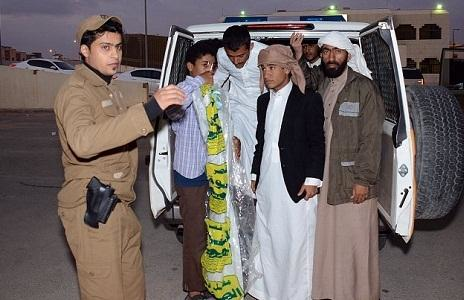RIYADH: In a two-day operation, police arrested 343 beggars including women and children during the holy month of Ramadan.
A police officer said the raid was carried out in the Salehiya district and 220 of those arrested were women from Ethiopia. “Most of them were living illegally in the Kingdom breaking all immigration regulations,” he said.
Those arrested were people who begged in the streets near traffic lights, malls, public parks and at hospitals.
The officer said that the operations are being carried out in the interests of the beggars. “On seeing the police cars, these beggars, who are mainly children, run around to escape and meet with serious road accidents,” he said, pointing out that that those arrested were mainly foreigners.
Some of these beggars carried letters purportedly written by philanthropists appealing to the public for assistance for medical treatment for the bearer of the letter, for artificial limbs and for purchase of medicines.
Police requested that the public not fall prey to the cooked-up tales of beggars who cheat the gullible. The official said that members of the public can direct such beggars to charitable organizations that have special programs to rehabilitate them and look after their families as well. "Some of these beggars try to exploit the kindness of the people to their benefit."
In October last year, 57 male and female beggars were arrested in a similar operation. Among them were a large number of child beggars who were manning the streets near traffic lights. Most of the beggars who were caught were foreign nationals.
Begging increases in the Kingdom during Haj and the holy month of Ramadan when it is customary to give to charity.
Under a program launched by the government, expatriates convicted of begging are deported, while Saudis are sent for rehabilitation under a program of the Ministry of Social Affairs.
The police raids were conducted on the directives of Riyadh Gov. Prince Faisal bin Bandar. The beggars are being arrested to curb crimes committed by these illegals who violate local regulations involving thefts, sorcery, cupping therapy, brewing liquor and other nefarious activities.
A survey conducted by UNICEF in 2007 found that up to 50 percent of child beggars in the Kingdom entered the country with their parents.
UNICEF also trains border guards on how to recognize and take care of trafficked children. This program was developed under an agreement with Saudi Arabia, and trains and teaches how to treat children during their arrest and deporting them safely back home.
343 beggars arrested in two-day swoop
343 beggars arrested in two-day swoop











